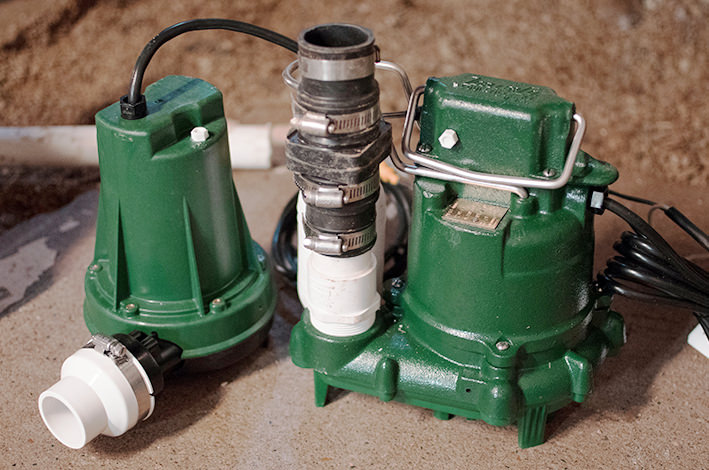Sump pumps are excellent protective equipment that every residence owner must have. They prevent your basement, or pretty much any lowered ground, from flooding and water damage. As outstanding as they are, they can become cumbersome when your pump system fails, weighing you financially in terms of repair. This is where you need to learn the art of optimized selection of sump pumps.
The best sump pumps are listed below based on considerations like the pump’s cost, type, operation, horsepower, voltage, head pressure, length of the cord, and overall cost. A comprehensive listing enables you to choose an effective and affordable system, helping you make an informed decision.
This article will give you a fair understanding of the different sump pumps, with specific tips to help you choose effectively.
Types Of Sump Pumps
First, you must familiarize yourself with the types of pumps available to you. They are given as follows:
Primary Systems
The first and most common type of pumping system in the market is the primary sump pump, which has a large residential base due to its excellent water-seeping abilities. They have high-end pumping capacity. Primary ones come in two forms:
Submersible Pumps
Submersible pumps are considered one of the best sump pumps as they are placed under the surface of the basin and work with large sump basins as per review guides. Upon analyzing, you will find that their installation is cheaper and offers top-notch quality. Submersible pumps detect water level hikes and are incredibly agile in their piping. They are reticent, making them a compelling choice for residential areas.
Pedestal Systems
Pedestals, as in the name, do not engage with the basin but rather with the basement floor, where water is drawn and pumped away from the level. Their awkward location makes them noisy, but they are incredibly cheap.
Battery Backup Systems
Battery-based pumps are the current trend, providing much-needed assurance of operation during power outages. As in the name, they are instrumental in areas with frequent power outages. That is, however, not the only advantage. They are usable during any pump system failure. The current technology also incorporates a comprehensive notification system for the owner during power outages.
Combination Systems
As in the name, these sump pump systems are an integrated form of the above two sump pump types. A flooded basement is an overwhelming situation, and the aftermath is a whole nother dreadful activity. Combination sump pumps deal with the same, providing top-notch flood protection for your home. Nothing compares to combination systems in terms of optimized power and high-end security. The battery kicks in when the primary system fails and keeps the water from damaging.
Sewage Pumping Systems
Lastly, sewage pumps are designed to deal with sewage effluents from the residential area to a septic system. The main difference differentiating sewage pumps from conventional ones is their capacity to pass 2″ volume materials.
Choosing The Right Size Of Pump
A submersible pumping system is any residential owner’s first choice regarding water control. A common mistake is to choose the pumping system based on size, with the notion that the larger the machine, the better. However, an oversized sump pump can burn out the system due to recurring cycling and suffers the same limitations as an undersized pump. The most crucial factor to remember is the dimensions of your sump pit.
Choosing The Right Horsepower (HP)
Every pumping system has its curve and applications, so looking through the labels will give you an idea about the manufacturer’s recommendations. Total pump outputs differ between manufacturers and can range from ⅓ horsepower units (HP) to ½ HP, ¾ HP, and 1 HP. Higher GPM necessitates proper attention to the pipe diameter.
Conclusion
The above-mentioned listing of highly rated and expert-recommended submersible pumps will help you dig deeper into real-time customer reviews about the quality of operation. Keeping the above factors and types in mind can help you make an informed decision that works well with your home.

